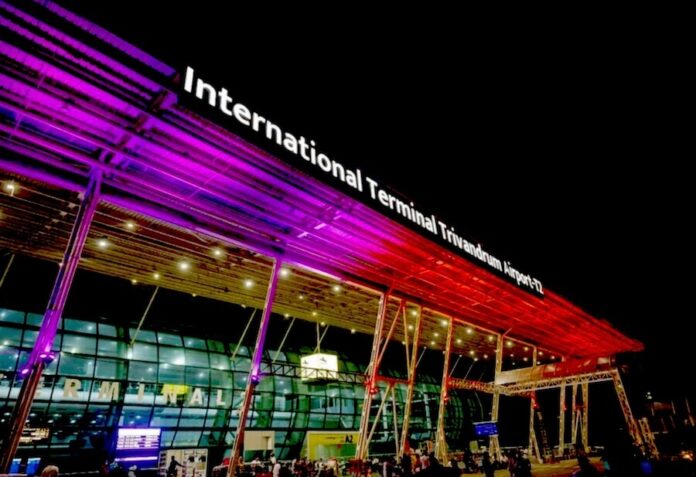At Trivandrum International Airport, something unsettling happens when travellers need internet access. Under Adani Group’s management, the airport requires passengers to scan their passports and boarding passes at Wi-Fi kiosks; a practice that defies global standards where airport connectivity is typically provided freely and with minimal data collection.
The question is simple: Why should travellers surrender their most sensitive personal information to a private corporation for a basic service that airports worldwide provide without such invasive requirements? Most international airports offer complimentary Wi-Fi with at most a simple email verification, never demanding passport scans.
This becomes particularly alarming considering the operator involved. The Adani Group has faced serious allegations of corruption and bribery schemes, including the damning Hindenburg Research report that accused the conglomerate of stock manipulation and accounting fraud. While Adani denies these claims, the cloud of controversy remains.
Passports contain biometric information, travel history, and citizenship details essentially a complete identity package. Allowing a company facing serious questions to collect such data from thousands of daily travellers creates unprecedented security risks. In the wrong hands, this information could facilitate identity theft or compromise national security.
The justification for such data collection appears weak at best. While airports may cite security concerns, requiring passport scans for Wi-Fi represents an overreach that serves little practical benefit. If anything, creating centralised databases of passenger information in private hands potentially creates new vulnerabilities rather than solving existing ones.
This situation highlights a troubling lack of regulatory oversight. Airport security and data protection should fall under strict government scrutiny, yet this invasive practice appears implemented without adequate public consultation or challenge.
The government of India must act swiftly. At minimum, they should require Adani to immediately cease passport scanning for Wi-Fi access and implement a system aligned with global data protection standards. A thorough audit of what data has been collected and how it’s being stored is urgently needed.
In this digital world, protecting citizens’ data privacy cannot be left to corporations with questionable track records. The incident at Trivandrum Airport serves as a wake-up call for stronger privacy protections and greater oversight of how private companies handle the most sensitive personal information. Free Wi-Fi should never come at the cost of the fundamental right to privacy.

